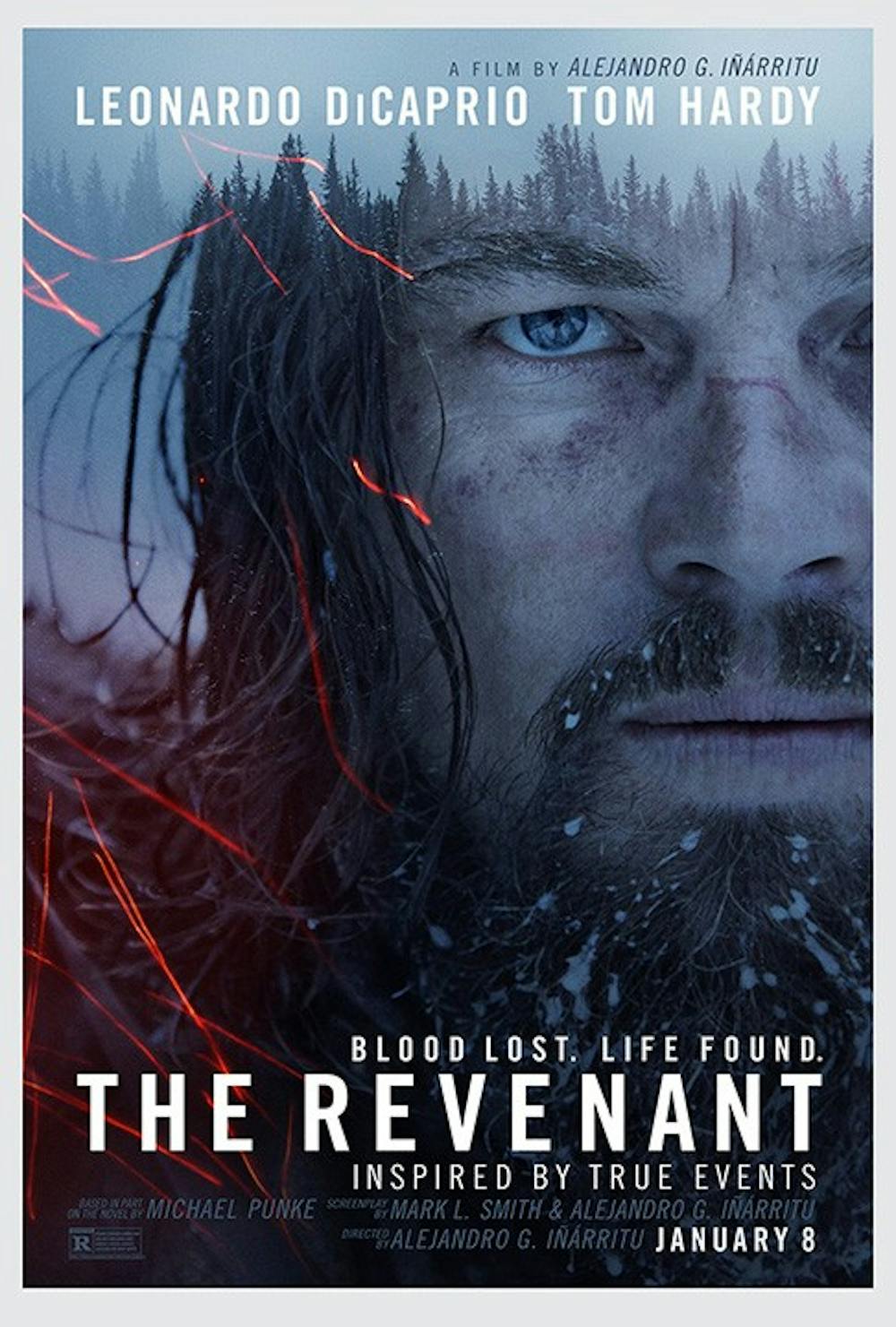Alejandro Inarritu’s “The Revenant” is a painful film. It will transport the middle-class moviegoer miles from popcorn and a theater seat to a bloody snowscape, transform the cinema into a harsh no-man’s land and replace the audience's 21st-century mindset with the gritty images of a lawless, wilderness of the past.
Loosely based on the real-life superhuman journey of frontiersman Hugh Glass (Leonardo DiCaprio), “The Revenant” is in turns beautiful and harsh and tedious. Over two and a half hours in length, the film requires a certain degree of patience from the audience — a desire to commit to Glass’ struggle as the trapper, brutally injured in a bear attack and left for dead by his companions, treks solo through a terrifyingly gorgeous terrain and finally completes his miraculous journey in order to have revenge on cruel fellow frontiersman, John Fitzgerald (Tom Hardy). In the course of the film, Glass faces hostile wildlife, nearly unbearable pain, starvation, human enemies and the unforgiving elements in his battle for survival and justice — all trials the audience endures right along with the film's protagonist.
With DiCaprio, Hardy, Will Poulter and Domhnall Gleeson, Inarritu (“Birdman”) landed a committed team of actors that seems to live and breathe their characters. This is especially apparent in DiCaprio’s ultra-convincing portrayal of Glass. DiCaprio’s commitment to this film converts him from the debonaire movie star who played Jack Dawson and the Wolf of Wall Street to a man whose need for survival and revenge is almost animalistic. In “The Revenant," a new, more intense DiCaprio emerges — a raw and desperate energy permeates his performance and seems to actually transform the actor into Hugh Glass himself. Although the film leaves a bit to be desired in the depth and development of Glass’s character, with a noticeable lack of lines for Glass and heavy reliance on dreamy flashbacks to tell his emotional state, DiCaprio pulls off the role with astonishing believability, giving a performance that makes the mental and most definitely the physical pain of his character almost tangible to the viewer.
Although there is no argument that DiCaprio dominates the screen in the film, an equally credible villain to DiCaprio’s hero is found in Hardy’s Fitzgerald. Hardy provides the perfect amount of callous greed and cruelty in his gruff and almost flippant delivery. With the largest amount of dialogue in the film, Hardy provides a thorough picture of Fitzgerald, a man who has been hardened by his harsh surroundings — hardened to a degree that enables him to feel no sympathy, no fear and no mercy. Hardy truly becomes the easy-to-dislike trapper, and is almost or just as convincing as DiCaprio in his characterization.
Equally as notable as the dedication of the cast of “The Revenant” is the striking cinematography of the film, done by Emmanuel Lubezki (“Birdman” and “Gravity”). Lubezki shot “The Revenant" using only natural light, even in the most difficult terrain and frigid filming conditions. The result is a film that immerses the audience almost fully in its action. Scenes such as the brutal bear attack on Glass seem to surround the viewer and pull him into the thick of the action. Furthermore, the natural beauty and exhausting size of the filming locations are showcased in breathtaking panoramic shots, achieved through shooting with very wide lenses. These sweeping shots highlight the enormous odds facing the injured Glass as he slowly travels alone through uncharted landscapes. The width of the lenses also forced Lubezki to shoot very closely to the actors’ faces, adding an interesting emotional element to the cinematography in which the most minute facial movement of a character is captured in a close-up. In an attempt to involve the audience as much as possible in the world of “The Revenant," the haggard exhalation of a character occasionally fogs the lens, immersing the viewer in even the breathing of the actors. The cinematography manages to involve the audience in the film’s action, making “The Revenant” extraordinarily visceral and engaging.
“The Revenant" is resilient and real, and it forces the viewer to commit to an evening at the cinema that enlightens and exposes rather than simply entertains. The harrowing, gritty portrayal of Hugh Glass and his fellow trappers took home three Golden Globe awards on Sunday for best dramatic motion picture, best director for Inarritu and best actor in a drama for DiCaprio. It would be no surprise if “The Revenant” has an equally strong night on Oscar night, and on top of bagging a fourth Academy Award for Inarritu, finally gives DiCaprio a golden trophy to call his own as a well-deserved gesture of appreciation for this epic and beautiful film.

